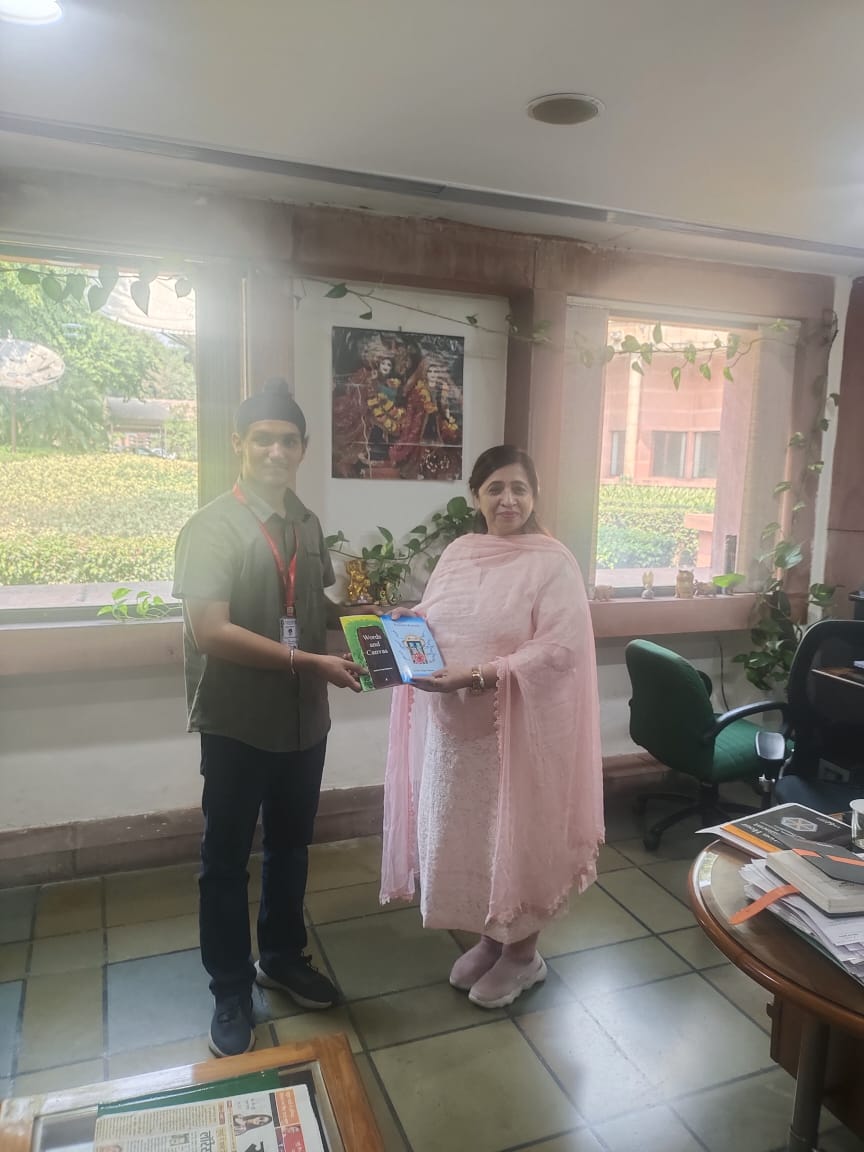Rohan and Rama are siblings studying in std seven in a school in Delhi. Rama is the group leader for the Science group activity involving an experiment of seed germination and a digital presentation on the same in the class. Rohan, on the other hand, is the main protagonist of a street play on the topic of “ Save Trees”.
Both Rohan and Rama were completely busy in organising their groups, doing the activity, making the presentation & placards so much so that no time was left for studies. The situation came to such a stage that their parents felt the need to talk with the kids about the studies being neglected.
Parents Mr. & Mrs. Patil decided to have a meaningful dialogue with them. The discussion went somewhat like below –
Mr. Patil – Rama & Rohan! We have observed, for the past one week both of you have been devoting your entire time in doing some projects rather than studies. What is the purpose of doing such group activities? Only you two are slogging, we do not see other kids involved at all?
Mrs. Patil – Your unit tests are approaching ? How will you revise for the subjects?
Rama – It’s not like that at all ma & pa. We are learning a lot while doing our respective project activities. Isn’t that right Rohan?
Rohan – Yes, we are learning much more than the subject knowledge while performing these tasks.
Rama is the team leader of her group. She had to assign the duties to each of her teammates. In doing so she assessed her friends strengths and accordingly asked them to carry out the tasks.
She is also coordinated with all so thet the project moves ahead smoothly.
Rama – Rohan while participating in the street play has leant the different ways to make placards, nuances of speec delivery and a better understanding of the topic which is common to many subjects like science, social science & arts.
While doing these activities we are learning the concepts by practical application, learn to work in groups, plan and execute and learn the topic for life.
The parents were amazed to hear their kids’ views. They tried to remember if they had used any such project activities during their school days. All they could remember was engaging in group activities during PT period, annual function, exhibitions or doing SUPW crafts.
Doing activities to understand subject matter , its interlinking with other streams and using tools to accentuate the information to be provided was unheard of.
They realised that with the technological advancements and digitisatio, the very structure of kids education had changed.
The three Rs of yesteryears – Reading, wRiting & aRithmatic are no longer enough to equip today’s kids to wade their way through the labyrinth of information overload, extreme competition and higher self- expectations and self-awareness.
The Patil household is representative of all of us in varying degrees based on the learning curve of the kids.? Do we not often seem to rue the fact that kids today, be they in kindergarten or higher secondary classes have a much busier life than ours?
It is true that the world around us has completely changed from what it was 20-30 years ago.
Televisions have been replaced by smart ones, blackboards have been replaced wth whiteboards, dishwashers, washing machines, ready to eat, online deliveries, digital payments, internet to name a few have changed our everyday living. We have adapted ourselves to fit in this mold.
Then why it becomes so difficult for us to realise that our kids cannot rely upon only the traditional educational ways to sustain and survive today. Discarding them completely is not the way for they are the fundamentals and basics. What is needed is to accentuate and empower these basic skills with a new set that would allow our kids to be present and future ready and be flexible to adapt to changing times.
The need of the hour is for the parents, elders, teachers and mentors to realise what these skills are. A lot of research has been done to identify these and they have been termed as the 21st century skills. We shall learn and understand about them in the next part of the series.
Continued……………….

)
)
)
)
)
)
)
)
)
)